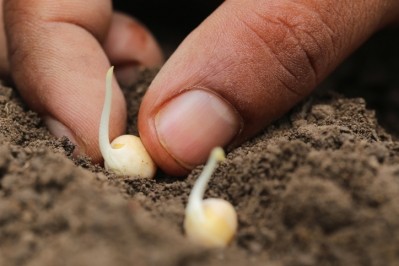New-generation snacks boom: Think pulses, beans, rice and seaweed…

Ingredients like bean and rice flours and pulses have boomed recently and this category of ‘other flours’ is set to surge at a CAGR of 4.3% between 2012 and 2017 – around four times faster than wheat flours, according to Euromonitor International data. By comparison, potato and cereal ingredients will only grow 2.5% and 3.2% respectively for the same period.
However, the data also shows that traditional flour ingredients still hold the lion's share of the market. Globally, volume consumption of wheat flours is the highest at 120.1m tons for 2012. By comparison, 'other flours' like bean-based, pulses and rice had a volume consumption of just 12.7m for the same year.
Despite this, contributing Euromonitor analyst Cathy Boyle said that the diversification in product formulations for snacks has been significant, with manufacturers looking for alternatives to the core potato and corn ingredients that have long dominated the category.
This diversification has created "new-generation snack formats", Boyle said, that use alternative flours and powders like bean, pulses and rice.
“I don’t think there is one single ingredient that is head and shoulders above the rest, though, it is really the positioning and the very ‘difference’ of these snacks that is driving demand,” she told BakeryandSnacks.com.
In North America, she said pulses are of particular interest at present driven by booming demands for gluten-free and high-protein products. In Europe, she said the gluten-free aspects of snacks are more interesting for consumers, fueling strong performance of rice flours and alternative cereals.
“In both regions, wholegrain products remain in strong demand, so ancient grains should benefit as consumers seek greater variety,” she added.
Director-general of the European Snacks Association (ESA) previously told this publication that lentils and other legumes would be the top wave of new product development for 2013 among snack makers.
Ingredients and drivers to watch…
Vegetable ingredients are being touted as the next big thing in soft drinks, Boyle said, and could thrive in snacking applications providing their ‘superfood’ benefits can be promoted effectively.
Seaweed in particular could be of interest, she said, as it offers multiple health benefits. “Already popular in Asia, it could be that western snack companies may start to explore option with this core ingredient.”
The trend for natural will not waver, Boyle said, and it will remain the core driver for alternative snacks. “More specifically natural nutrition, for example, products sourced from nature that offer specifically nutritional benefits like high-protein, high-fiber, gluten-free, low-fat, wholegrain.”
Does this mean the death of the potato chip?
Despite consumer desire for new and innovative ingredients, Boyle said these new-generation snacks would not take over old favorites.
“I wouldn’t think alternatives will surpass traditional ingredients for a very long time, if ever. The trend is being driven by consumer demand for a wider range of natural, healthy and ‘superfood’ ingredients, and although this is a strong market driver, not every section of the population is influenced by these themes. It is highly unlikely that demand for potato chips and corn chips will be surpassed by interest in bean chips or kale chips.”
In the US, the potato chip market was estimated to be worth a lucrative $7.28bn in 2012, according to Euromonitor data, and senior food analyst Francisco Redruello said the vegetable snack segment by contrast remained "nascent".
While alternative snacks will show faster growth than traditional options, Boyle said they still have some way to go to catch up.





















